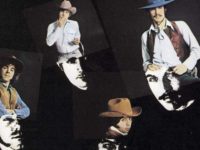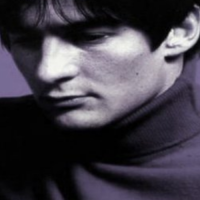The story of how a bounty of British bands bombarded the airwaves in 1964 and rewrote the rules has been told so often that it’s become as familiar as the tale of George Washington and the cherry tree.
After a year of such revolutionary excitement brought to us from our overseas relatives, it was only a matter of time before the game was changed once again. And so, in the spring of 1965, the Byrds from Los Angeles, California, surfaced on the scene and scored a No. 1 hit with an astounding version of Bob Dylan’s “Mr. Tambourine Man” that daringly wedded folk music markings to rock and roll rhythms. Aside from its immense appeal, the song kicked off a whole new genre of music — appropriately labeled folk rock — that blossomed into a worldwide phenomenon.
No warm and cuddly teen idols were the Byrds, as their music provided an intellect and maturity not commonly practiced by pop acts. Although the band’s debut album, duly called “Mr. Tambourine Man,” was freighted with Bob Dylan covers, their electrified treatments of the enigmatic folk singer’s poetry glistened with astonishing beauty and grace. The band’s original material additionally testified to be impressive, possessing a depth beyond typical pop fare.
Late 1965 saw the Byrds rack up another No. 1 winner by way a reading of Pete Seeger’s “Turn! Turn! Turn!,” which was adapted from the Book of Ecclesiastes. Armed with a message of faith and hope, the spirited anthem emerged at an ideal moment, with war raging in Southeast Asia and growing turmoil on the home front. The chart-busting single appeared on the band’s second album, also titled Turn! Turn! Turn! (Columbia Records) that akin to “Mr. Tambourine Man,” ran smoothly on high-grade folk rock fuel.
Equipped with a readily recognized sound consisting of ringing twelve-string guitars and heavenly harmonies, the Byrds take flight to the best of their outstanding abilities on each track of the album.
Penned by vocalist and tambourine player Gene Clark, “The World Turns All Around Her,” with its sparkling sheen and needle-sharp hooks, counts as a definite crown jewel, while a pair of his subsequent songs, “If You’re Gone” and “Set You Free This Time” are stark ballads aching with regret. Composed by vocalist and guitarist Jim (who switched his name to Roger in 1967) McGuinn, “It Won’t Be Wrong” rocks to an urgent edge, while Jim and vocalist and guitarist David Crosby co-authored the ultra-catchy “Wait And See” that combines bright and lively Merseybeat melodies with a characteristic folk rock flavor.
Renditions of Bob Dylan’s “Lay Down Your Weary Tune” and “The Times They Are A Changin'” are delivered with confidence and clarity, “Satisfied Mind” is laced with gentle country elements, and a fast finger-picking remake of Stephen Foster’s “Oh! Susannah” closes the album.
Strewn with socially conscious prose and a thoughtful tone that’s equal parts moody and positive, Turn! Turn! Turn! captures both the political and musical climate of the hour it was conceived. Ever the sonic scientists, the Byrds went onto pioneer psychedelia, followed by country rock. Not only were they one of the most adventurous bands of the ’60s, but their influence is as strong now as it was then.
Crisp, smart and exuding empathy, Turn! Turn! Turn! is the ultimate folk-rock memento, designed to stimulate the mind, grip the heart and sing along with.
- ‘Magic’ Wasn’t One-Hit Wonder Pilot’s Only Quirky, Radio-Ready Treasure - April 18, 2025
- How ‘Hollies Sing Hollies’ Showed New Promise After Graham Nash’s Exit - November 14, 2024
- Barry Melton on Country Joe and the Fish, Woodstock – and That Chant - August 15, 2024




